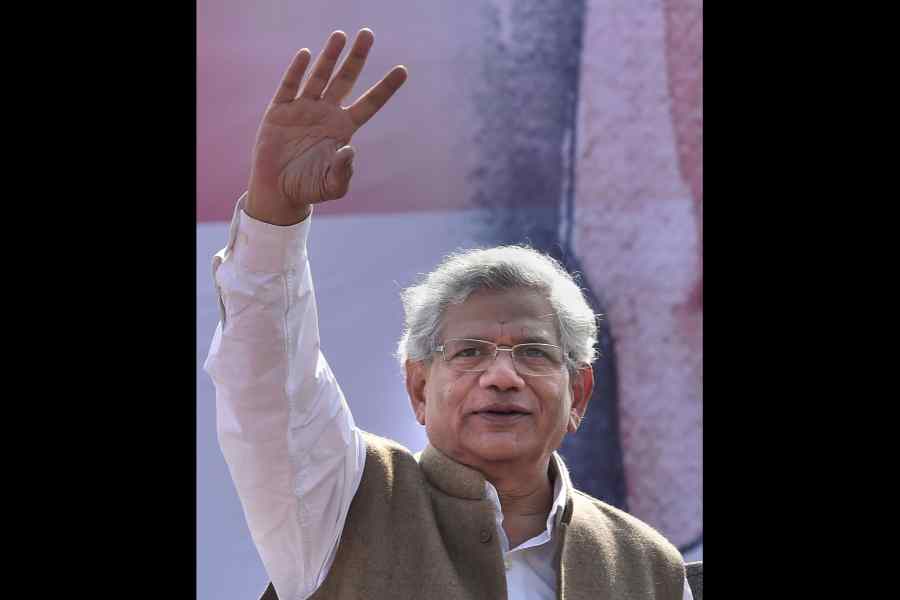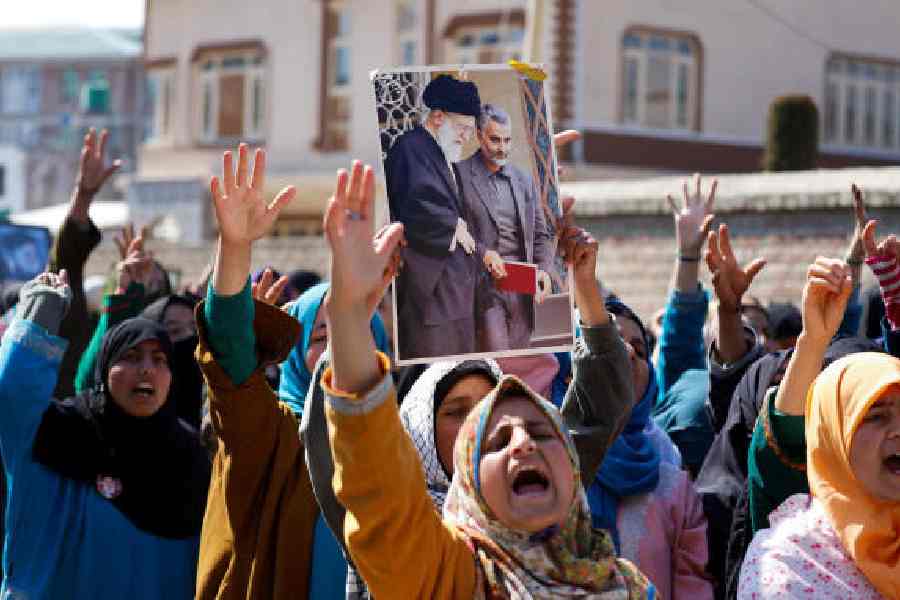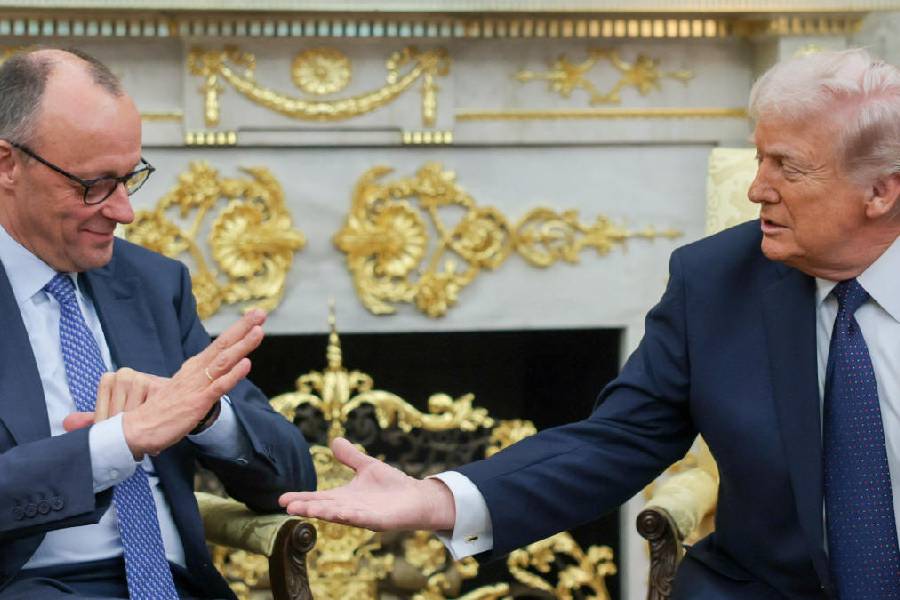PASSAGES: The convivial communist is gone from among us. Sitaram Yechury, or simply Sita, general secretary of the CPM, but far greater a man than that description could contain, passed away on Thursday afternoon after struggling with respiratory ailments that had long dogged him. He was 72.
Yechury is survived by his wife Seema, daughter Akhila and son Danish.
Admitted to AIIMS on August 19 with pneumonia, Yechury was declared dead at 3.05pm. The family has donated his body to AIIMS for teaching and research purposes in keeping with his wishes. The formal handing over of the body will take place on Saturday afternoon after it is taken to the CPM headquarters in Gole Market
for public viewing and paying homage.
A key architect of many a coalition government at the Centre — having learnt the art of alliance formation from one of its best practitioners, former CPM general secretary Harkishan Singh Surjeet — Yechury’s passing drew almost the same reaction from many who knew him well: “Gone too soon and at a time when India needs someone like him the most.”
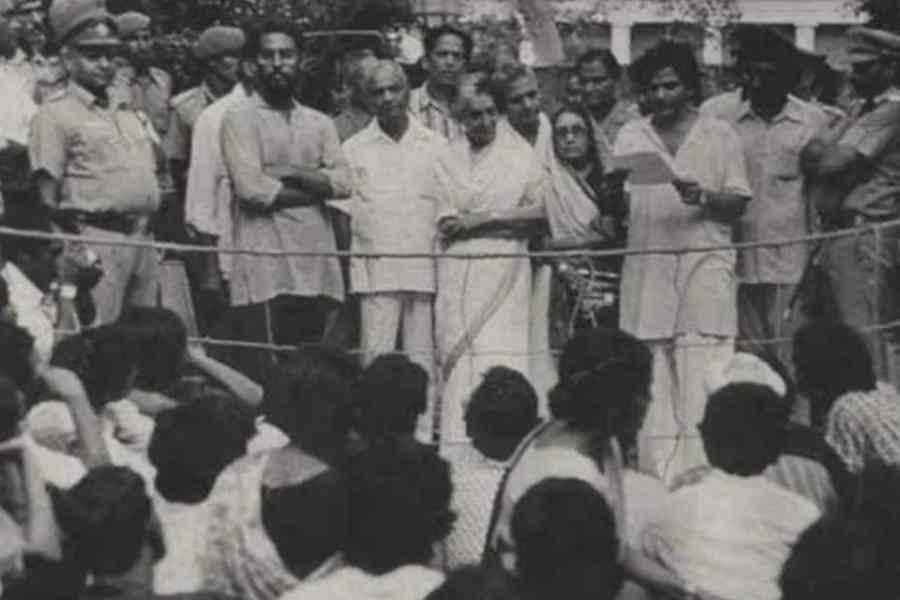
Sitaram Yechury, the then JNU Students Union president, reads out a letter calling on Indira Gandhi to quit as the university’s Chancellor in 1977 Sourced by The Telegraph
Evidently at a loss for words, RJD president Lalu Prasad said: “Comrade, itni jaldi nahi jaana tha (Comrade, you shouldn’t have gone so soon).”
“Sita”, as he was fondly called by many, not only saw the danger posed by Right-wing forces to India’s constitutional architecture early, he was also prepared to take on the hardliners within his own party to build bridges with the Congress to keep the BJP
at bay.
Former Bengal governor Gopalkrishna Gandhi summed it up thus: “Democratic socialism has lost its most ardent champion and secularism its most passionate voice. To a friend of friends with a heart of gold, I offer farewell in utter and disconsolate grief.”
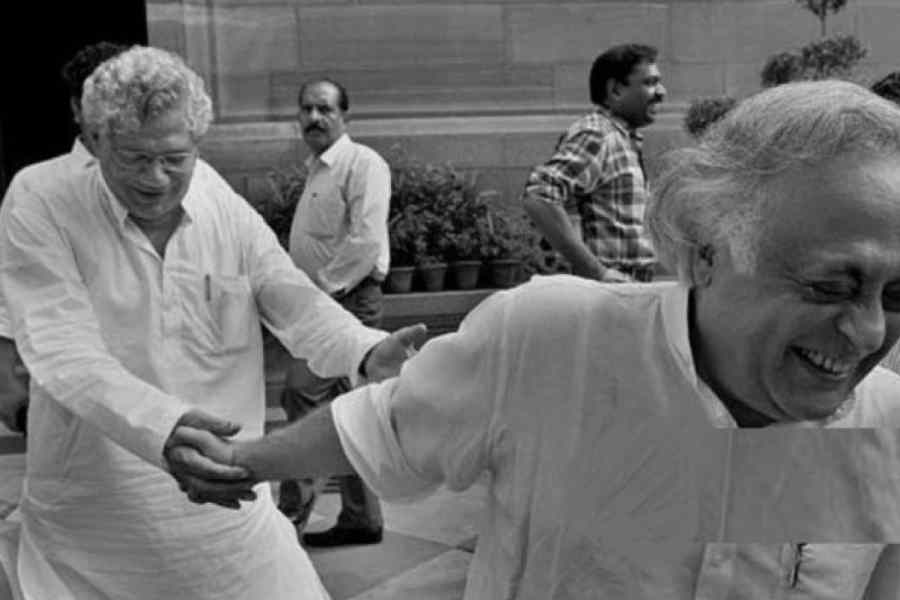
The fabled Jairam-Sitaram duo in the Rajya Sabha. Picture posted on X by Jairam Ramesh
Yechury’s easy demeanour made him friends across the political spectrum, and many in the Right wing — whom he baited regularly — found it difficult to go after him, charmed as most were by his disarming and infectious smile and ability to come up with an apt wisecrack to ease the tension. This used to be on full display in the Rajya Sabha where he was considered the de facto leader of the Opposition in his second term after the BJP came to power at the Centre.
At ease with several languages, Yechury used his upbringing in a Brahmin family to good effect in Parliament, reciting Sanskrit shlokas with aplomb much to the chagrin of the Sangh Parivar who least expected this from a sworn Marxist and, worse, had no one in their ranks that could match him on this count in the Upper House.
Such was the leadership he gave the Opposition in the Rajya Sabha that when his term came to an end in 2017, the Congress was prepared to back Yechury for a sixth Rajya Sabha seat from Bengal. The offer was exclusively for him and the CPM shot it down, ceding space in the Rajya Sabha at a time when home minister Amit Shah entered the House for the first time. The Left voice in Parliament faded since Yechury’s departure.
As he signed out on Thursday, Yechury had clocked five decades in politics, having joined the student movement in JNU in 1974. Along with his predecessor at the party’s helm, Prakash Karat, he made his mark early and remained a force to reckon with despite the dwindling numbers of the CPM in Parliament.
His early rise to prominence was showcased in a much circulated photograph taken soon after the 1977 Lok Sabha elections when a JNU Students Union delegation led by Yechury as its president called on Indira Gandhi to demand her resignation as the university’s Chancellor. She resigned a few days later.
Yechury is often regarded as a mentor to Congressman Rahul Gandhi, who said in a post on X: “Sitaram Yechury ji was a friend. A protector of the Idea of India with a deep understanding of our country. I will miss the long discussions we used to have.’’
Calling his death a profound loss, Priyanka Gandhi Vadra said: “His years of service and devotion to our country is worthy of the greatest respect. Most of all, he was an inherently decent human being who brought a sense of balance and gentleness to the harsh world of politics.”
Jairam Ramesh of the Jairam-Sitaram duo in the Rajya Sabha bid him a fond adieu: “Sitaram Yechury — a very fine human being, a multilingual bibliophile, an unrepentant Marxist with a pragmatic streak, a pillar of the CPM, and a superb Parliamentarian with a wonderful wit and sense of humour — is most sadly no more. Our association stretched over three decades, and we collaborated closely at different occasions. He had friends across the political spectrum and was admired for the strength of his convictions and for his most engaging personality. Salaam Tovarish. You have left us much too early but you enriched public life immeasurably and will not be forgotten.”
One of Yechury’s major contributions to public life is getting parties in the country to internalise the Trotskyite idea of marching separately but striking together; the Kerala model being the prime example where the Congress and the CPM are arch rivals in the state but work together at the Centre against the BJP.
Bengal and Punjab have also adopted it with the INDIA bloc experiment. This was work in progress and now the main hand steering it will be “sorely missed” as former Congress president Sonia Gandhi put it, recalling his pivotal role in UPA-I and enormous contribution to the emergence of the INDIA group.

